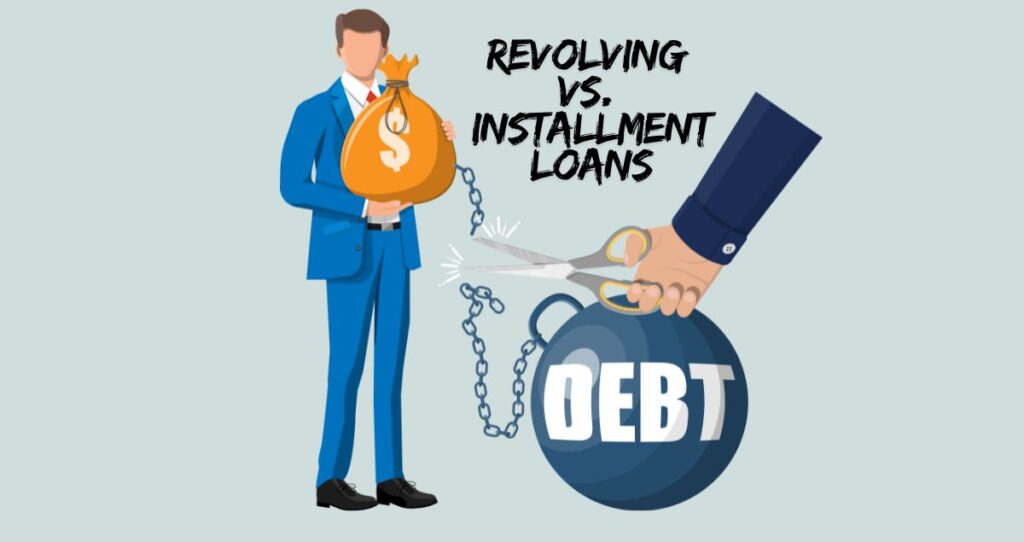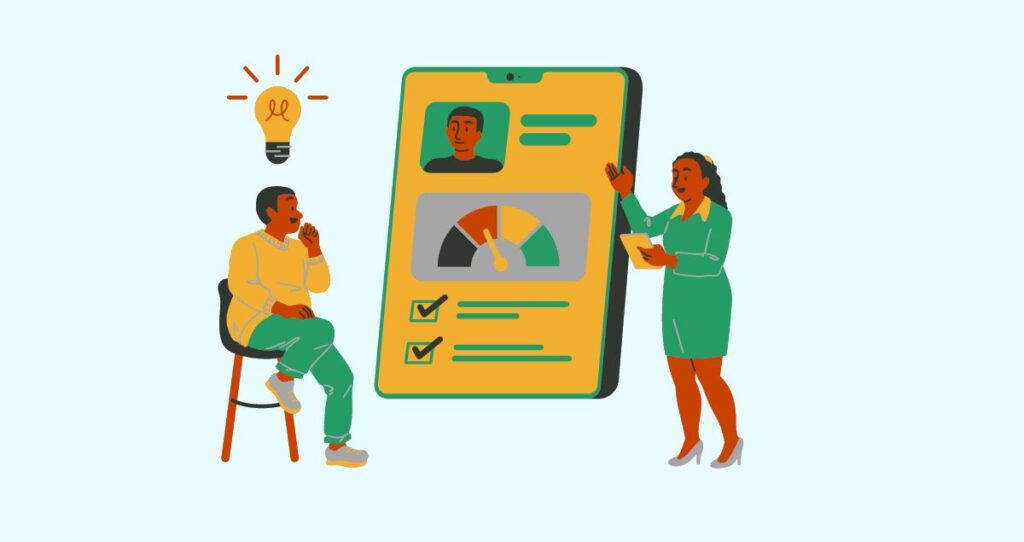Mortgages are bought and sold all the time due to different reasons. For example, your mortgage provider or mortgage servicer can file for bankruptcy. In this case, another servicer will buy your current mortgage and its servicing rights during the bankruptcy proceedings. If you are wondering what will happen to your escrow account when your mortgage is sold, you have come to the right place.
Once your mortgage is sold your former servicer will transfer your escrow account to your new servicer. Since your escrow account holds the money reserved for your insurance and property tax, your home insurance company and local government will also be notified about the transfer of your mortgage servicing rights. This is to make sure that your insurer and county or city bill the new mortgage servicer instead of your former servicer.
What is an escrow account?
Before we dig deeper into what happens to your escrow money when your mortgage is sold, let’s first evaluate what an escrow account is and what it is intended for.
An escrow account is an account that is managed by a third party usually a mortgage servicer during a real estate transaction. For example, when a buyer is interested in purchasing a home, the escrow account will hold the earnest money. The earnest money is nothing other than a deposit you make to show your commitment to the real estate purchase. The account where that money is held is known as an escrow account. After closing, the escrow funds can be used toward your down payment, closing costs, or refunded.
An escrow account is also used to hold money intended for your property tax and homeowner’s insurance premium. Your monthly mortgage payment usually contains four different parts known as PITI.
- P= Principal
- I = Interest
- T = Tax (property tax)
- I = Insurance (homeowner’s insurance)
When your monthly payment is received, the escrow account is used to hold the portion of your payment that covers the tax and insurance premiums. Your mortgage servicer is usually the one who manages your escrow account. So, when your mortgage is sold to another company, your escrow account also gets transferred to the new mortgage servicer. Any mortgage payment you make after a certain date will go to the new servicer.
What is an escrow refund?
An escrow refund is money you receive when your escrow account had more cash than needed. For example, if you just finished paying off your home, the company that manages your escrow account usually your mortgage servicer might give you an escrow refund. Meaning you will receive a check for the remaining escrow balance.
You could also be eligible for an escrow refund at the end of the year. Many cities and counties perform property tax assessments every year to make sure that homeowners pay taxes that reflect the true value of their homes. This means that your property tax can go up or down depending on the result of the assessment. If your tax ends up increasing, for example, your monthly payment might not be able to cover your property tax and insurance. For this reason, your mortgage servicer usually performs an annual escrow analysis.
If the escrow analysis finds that you have more money than necessary in your escrow account, you might receive a refund. In most cases, your mortgage servicer can apply that extra cash toward the following year especially when the surplus is under $50.
Why does the lender create an escrow account after closing?
After closing on a home purchase, your mortgage servicer will create an escrow account for you. This account will hold a portion of your monthly payment that covers your property tax and homeowner’s insurance premiums. The escrow fund is then used to pay your tax and insurance when they are due to make sure you don’t miss any payments or have late payments.
Can I take money out of my escrow account?
No, you cannot take money out of the escrow account. During a real estate transaction or where escrows are needed, a third-party company usually an escrow company or mortgage servicer manages the escrow account. The money in the escrow account is designed to serve a specific purpose. As a homeowner or homebuyer, you don’t have authority over the account or the money inside it. Only the escrow account manager can decide what happens to the money inside the account based on the outcome of the contract between a buyer and a seller.
There are times when you might qualify for an escrow refund. This happens due to different circumstances. For example, you could qualify for an escrow refund when there is a surplus in the account after paying off the mortgage, when you deposited more than necessary, or when there is a change in property tax or insurance premiums.
When can funds be removed from an escrow account?
The money in the escrow account will remain there until both parties agree to close the sale or decide to terminate the contract. If the transaction goes through, the escrow funds can be used to cover some of the closing costs or be used as part of the down payment in case of buying. Any remaining balance can be refunded assuming that all fees and charges are fully paid and all terms of the contract are successfully met.
The purpose of escrow money is to make sure that every person is held responsible for the agreement in the contract during the transaction process. The escrow money is also known as earnest money is held in an escrow account for the duration of the transaction. Meaning that if a buyer walks away from the deal, he/she will lose the escrow money. You can’t just take the money out of the escrow account as it is managed and controlled by a third-party company.
What happens to escrow money after paying off the house?
After paying off your mortgage, your mortgage servicer will evaluate your escrow account. If there is a remaining balance in the escrow account after paying off your mortgage, you might be eligible for an escrow refund. You should expect to receive your escrow refund within 20 days from the date you paid off your mortgage.
What are other instances you can receive an escrow refund?
Besides paying off your mortgage, there are other times when you can qualify for an escrow refund.
- You paid a surplus when purchasing the property. If you made a large payment than necessary, you might be eligible for an escrow refund.
- Your insurance premium went lower. Insurance premiums can go up and down over time. In real estate especially, insurance premiums reflect the value of the property. For example, if the value of your property drastically went down, your insurance premiums could also go lower. In this case, you might end up with excess funds in your escrow account. As a result, you might receive an escrow refund.
- Your property was assessed for less value. If your property was assessed for less value, your property tax will go lower. Lowering your property tax means that savings inside your escrow account might be more than necessary. If your mortgage servicer sees that you have a surplus in your escrow account due to a reduction in property tax, you might receive a refund.
How to keep track of your escrow account?
If you need to know how much money you have in your escrow account, the best way is to contact your mortgage servicer. It is also possible that your escrow is being managed by another third-party company. Regardless of the case, your mortgage provider/mortgage servicer will have this information. It is also possible that your mortgage servicer has online access where you can create an account and track your escrow history and balances.
Does escrow money earn interest?
The escrow money does not earn interest and the escrow account is not an interest-bearing account. This is because the escrow account is treated as a safe account that holds the money until a particular transaction is fulfilled which contradicts the purpose of a traditional savings account or investing account. Lenders use the escrow account to hold money on behalf of their clients to make sure that a particular transaction is met. For example, your mortgage servicer holds your insurance and property tax money in an escrow account and pays it directly from the account.
According to Investopedia, the U.S. Department of Housing and Urban Development (HUD)does not issue specifications as to whether the escrow money should be held in interest-bearing accounts. In addition, Federal regulations do not require third-party escrow managers to pay interest on the money inside the escrow accounts. In case a little interest is required in some states, it will be extremely minimal to be considered as interest on the account.
Who owns the money in the escrow account?
Technically, the money in an escrow account is not owned by anyone. That is why the money is held by a third-party company that is not related to any of the parties in a real estate transaction. The money stays in the escrow account until both parties come to a conclusion about their real estate contract. After the transaction has become successful, the seller will get the escrow money back. The escrow money could also be used to cover part of closing costs or as part of a down payment.
After buying a house, your lender will create an escrow account for you. This account will hold a portion of your down payments that covers your property tax and insurance. Again, funds in this account do not belong to your mortgage servicer. Instead, it is held in the account to pay your property tax and insurance when they are due.
What to do when you receive a notice telling you to pay your mortgage to a different mortgage servicer?
After your mortgage is sold to a different company, there will be a time when your former servicer will stop taking your payments. This means that your monthly payments must be directed to your new servicer. Your escrow account and account information will be transferred to the company that bought your mortgage.
But, before you write a check to your new servicer, it is always important to verify and make sure that the new servicer is the right business to take your payments. You should always contact your old servicer and confirm the changes in payment structures and servicing rights.
The tricky part about businesses is that your mortgage servicer will never notify you about their financial problems or what they are trying to do. It would be bad for business. What you will hear is that your bank or mortgage servicer was bought by another bank or company. A bankruptcy, business merger, etc., all can lead to your mortgage being sold to another company.
When your mortgage gets sold, your escrow account and all of your information get transferred to the business that purchased your mortgage and its servicing rights.
When your mortgage servicer closes its doors or goes out of business and your mortgage is sold, you should be notified about when your current mortgage servicer will stop taking payments and where your mortgage payments should be directed afterward. You should get a notification about these changes within 15 of the sale according to Realtor. There is also a 60 days grace period where the new servicer cannot charge you a late fee on your mortgage payment in case you mistakenly sent the payment to your former servicer.
Your new mortgage servicers will also contact you regarding changes in your payment structures, the name of the business, address, and other information needed to make the transition simple and straightforward. You should get a notification from your new servicer within 15 days after your accounts have been transferred. According to My mortgage Insider, both notifications could also be combined in a single notification.
If you never received a notification about the changes in your mortgage ownership, always contact your former mortgage servicer for proof and confirmation. Matter of fact, if you were never contacted about the changes in your mortgage and all of the sudden receive an email or a message telling you to make payments somewhere else, it is more likely a scam.
Will my mortgage payments change when my mortgage is sold?
When your mortgage is sold, the terms of your mortgage and your monthly payments do not change. The only thing that changes is the ownership of your mortgage and its servicing rights. For example, if your current mortgage servicer goes out of business, your loan will be sold to a new servicer. Your escrow account will then be transferred to the new servicer who will manage it until the house is fully paid off or when your mortgage is sold again.
Your mortgage payment can change not because it was sold but because of changes in your property tax and insurance premiums. Usually, a portion of your mortgage payments goes into your account to cover your insurance and property tax. So, if your property is assessed for a higher value, your mortgage payment can change. The same would happen if your insurance premiums all of the sudden went higher or lower.









